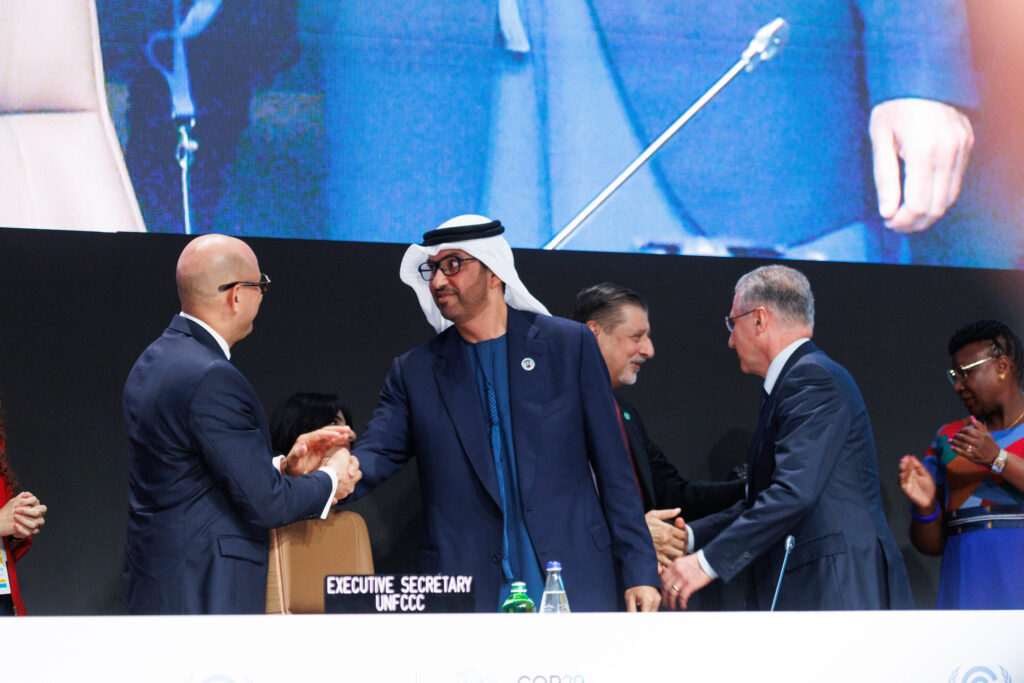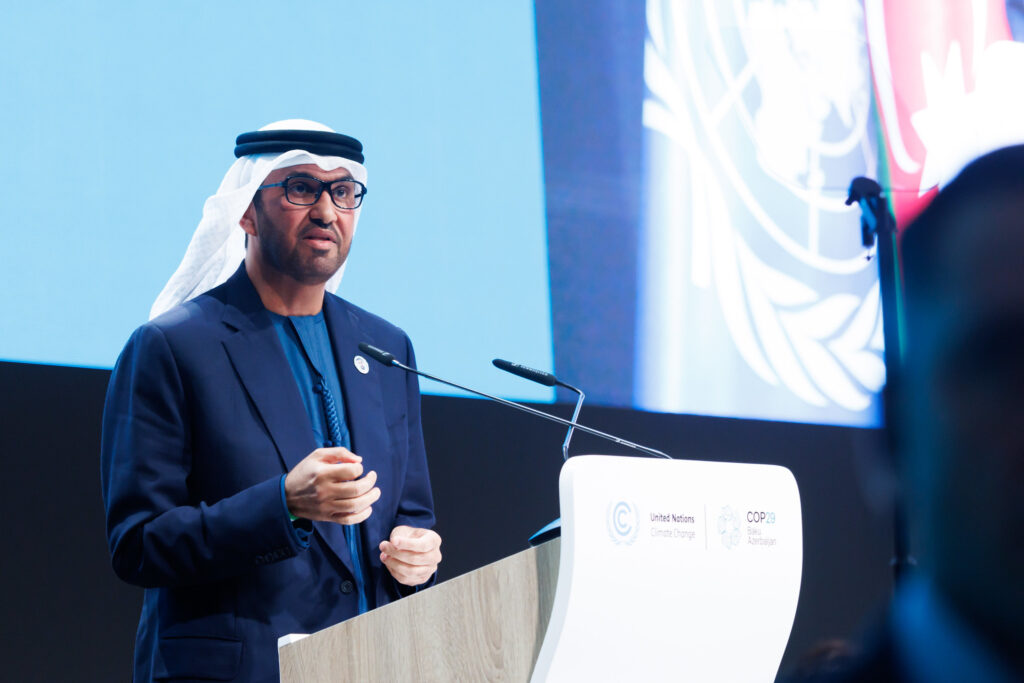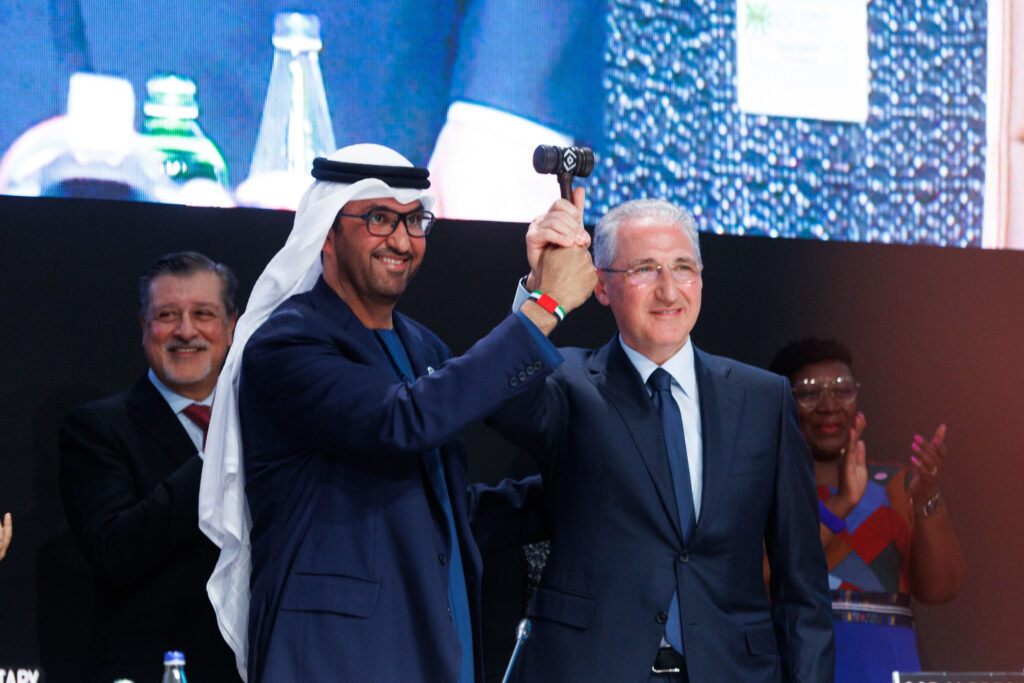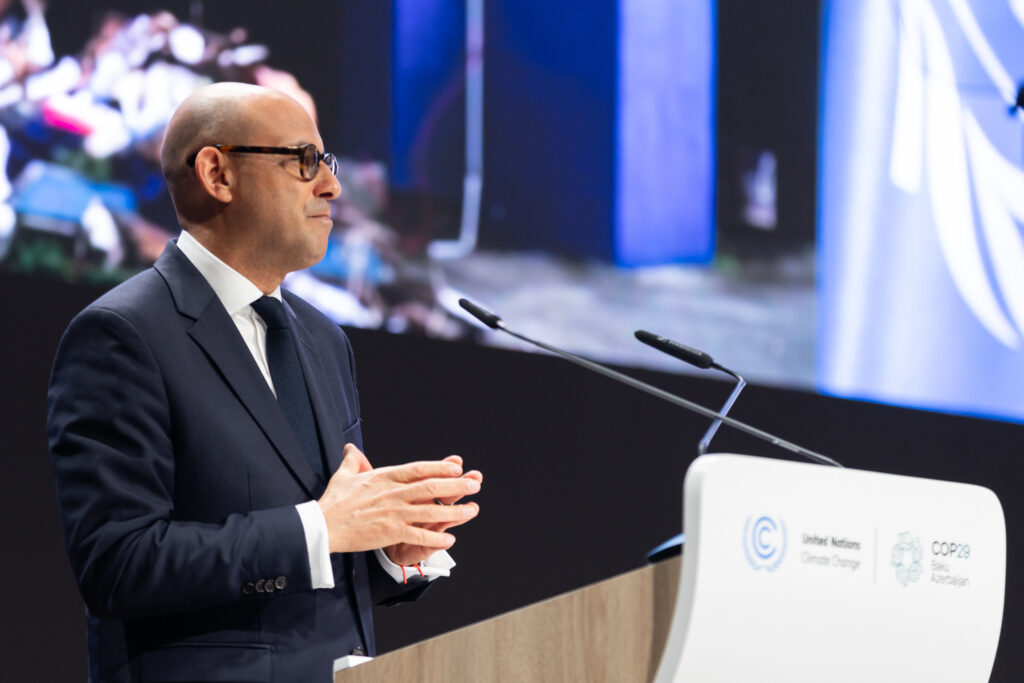Baku, Azerbaijan. As COP29 kicks off in Baku, Azerbaijan, the world faces a stark reality: time is running out to prevent climate change’s worst consequences.
From scorching heat waves in Europe to deadly floods in South Asia, the world’s most vulnerable communities bear the brunt of this crisis. Leaders, activists, and scientists agree—this year’s COP is a critical turning point.
“Climate change is not just a future problem; it’s a present crisis,” remarked UNFCCC Executive Secretary Simon Stiell. If we continue on our current trajectory, millions more will face extreme hardship. COP29 must be where we reverse that trend”.
A poignant story from this year illustrates what’s at stake.
Florence, an 85-year-old from Carriacou, lost her home to Hurricane Beryl. She has lived her entire life on this small Caribbean island, yet in just a few hours, the storm wiped out nearly everything she owned. Standing in the rubble of her home, Florence remained determined to rebuild.
“My family needs me to be strong,” she said, her voice steady. “We can’t give up.” Stories like Florence’s are all too common, and they are reminders of the human cost of climate inaction.
As COP29 begins, a major item on the agenda is a new global climate finance goal. Many developing nations lack the resources to cut emissions or adapt to climate impacts quickly, yet the costs of inaction are global. “This is not charity,” stated Dr Amina Mohammed, Deputy Secretary-General of the United Nations.

“Climate finance is an investment in global stability. When vulnerable nations are left to fend for themselves, we all pay the price through greater food insecurity, economic instability, and climate-driven migration”.
COP29 also sees a renewed focus on global financial reforms that could free up resources for climate resilience and emissions reductions.
President Ilham Aliyev of Azerbaijan, hosting this year’s COP, highlighted the importance of a balanced approach: “We need a financial system that serves everyone—not just the wealthy. Every country should have a fair shot at protecting its people and its environment.”
Delegates are also revisiting Article 6, aiming to establish a transparent, functional global carbon market.
“Carbon markets aren’t just a bureaucratic tool,” said Dr Sultan Al Jaber, former COP28 President. “They’re a mechanism for collaboration that allows countries to work together to meet emissions targets. But without clear, enforceable rules, this system will fall apart”.
Mitigation Targets and the Path to 1.5 Degrees
A key theme this year is realizing the mitigation targets set at COP28 in Dubai, with the goal of limiting global warming to 1.5 degrees Celsius. “We’re in a race against time,” said COP29 President Babayev. “Every fraction of a degree matters. We can’t allow 1.5 degrees to slip from our grasp”.

To accelerate the transition, global clean energy investments are projected to reach two trillion dollars in 2024, nearly double the investments in fossil fuels. However, delegates stress that even these massive investments need better coordination and global participation to create meaningful impact.
“Fossil fuel dependency has no future,” declared Ban Ki-moon, former UN Secretary-General. “The shift to clean energy is unstoppable, but the pace must quicken. Every nation has a role to play in ensuring this transition is just and equitable”.
Setting Clear Adaptation and Loss & Damage Goals
This year, delegates are pushing for concrete adaptation goals to help communities prepare for climate impacts.
“You can’t manage what you don’t measure,” explained Christiana Figueres, former UN Climate Chief. “Setting adaptation targets will help countries evaluate their progress and identify areas that need urgent support”.
The Loss and Damage Fund, designed to assist nations already suffering from climate impacts, remains a top priority. “No one should be left to suffer the consequences of climate change alone,” asserted Saleemul Huq, a climate adaptation expert.
“We must put mechanisms in place that can truly support communities facing devastating losses”…
As nations begin submitting their third-generation Nationally Determined Contributions (NDCs), the UNFCCC is set to launch a Climate Plan Campaign to support countries in developing and implementing their climate strategies. “Transparency and accountability are essential,” said Stiell.
“Our new Biennial Transparency Reports will give us a clear picture of what’s working and where gaps remain”.

The Power of Global Cooperation
For COP29 to succeed, nations must bridge divides and unite around actionable, shared goals. “Global cooperation is our strongest weapon against this crisis,” said Dr. Mohamed Adow, Director of Power Shift Africa. “No single country, no matter how powerful, can tackle climate change alone”.
President Babayev concluded the opening ceremony with a powerful call to action: “This is not just another conference. It is a test of our resolve and our willingness to work together for the good of our planet and future generations. Let us show the world that COP29 will be remembered as a moment of breakthrough”.
As Florence’s story and countless others around the globe remind us, climate action cannot wait. The decisions made here will shape our shared future—one where resilience and unity must be the guiding principles.
COP29 is an opportunity for world leaders to stand together and show that they are committed to the fight for a sustainable, livable planet. The question remains: will they rise to the occasion?



I am extremely impressed with your writing skills and also with the layout on your blog. Is this a paid subject or did you modify it yourself? Anyway stay up the nice quality writing, it’s rare to look a nice weblog like this one today!